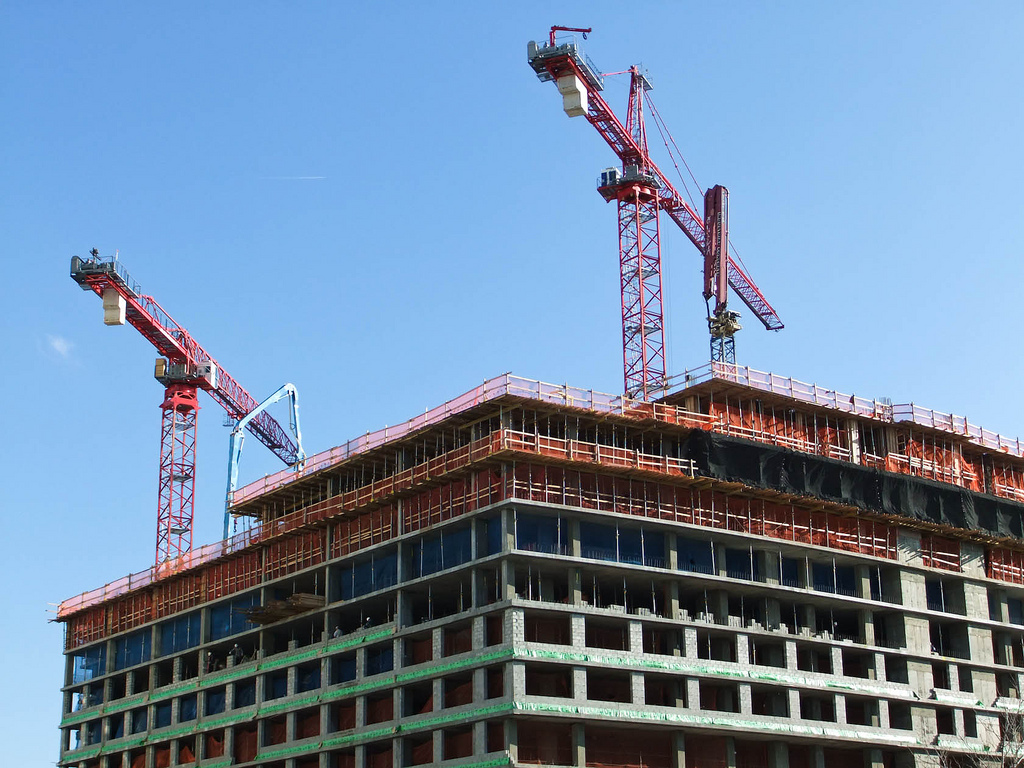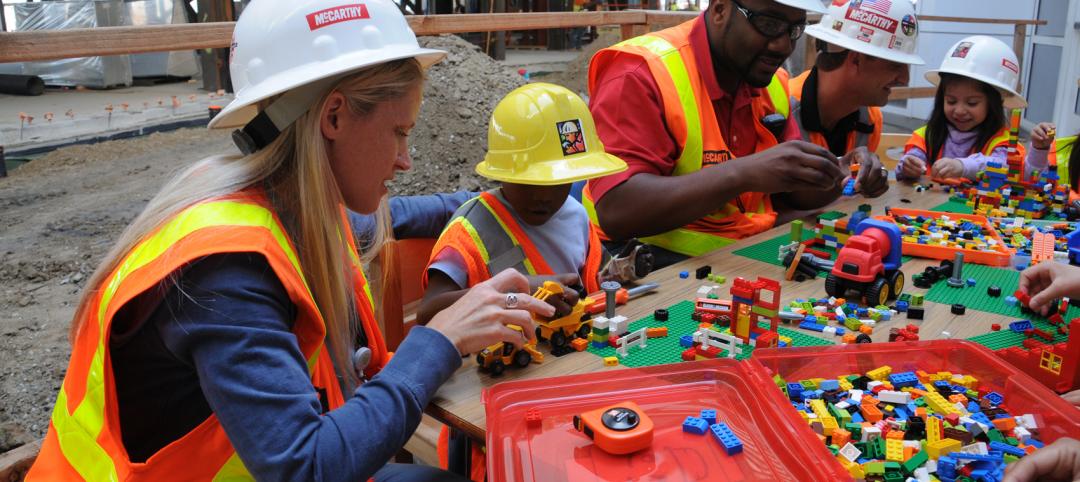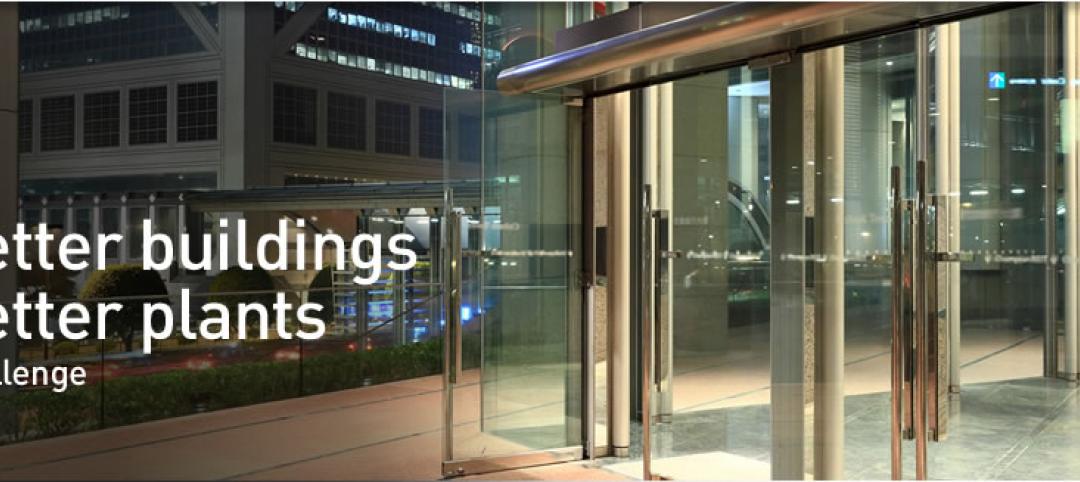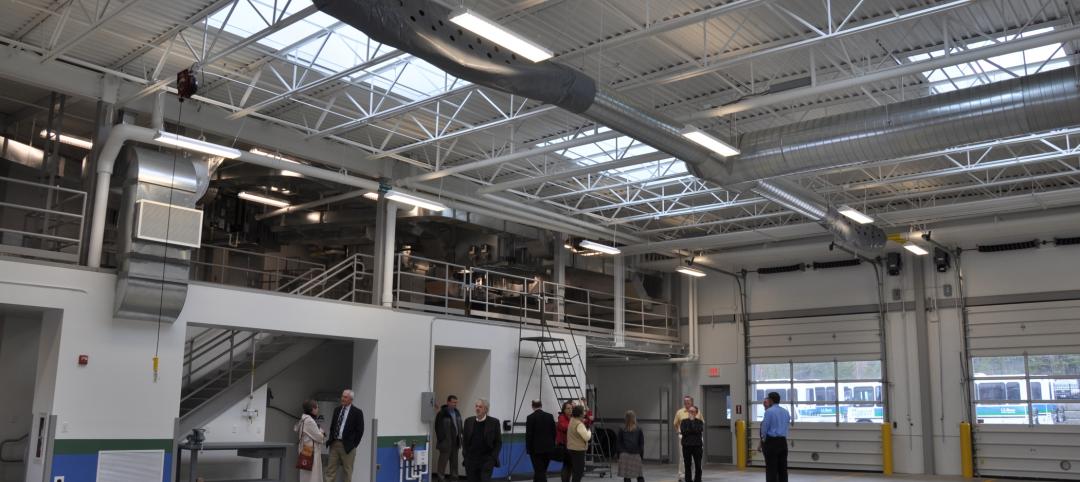The nonresidential construction sector continues at a steady pace despite a slight decline, according to the FMI Nonresidential Construction Index Report (NRCI) for Q3 2015. The index reflects the observations of a sample of the nation's construction industry executives.
FMI’s NRCI for Q3 2015 dropped 1.3 points to 63.6 from the previous reading of 64.9 in Q2. While the NRCI component for the overall economy dropped 6.3 points to 70.6 points this quarter, which is down from its peak, this component still indicates that panelists remain bullish about the economy.
Similarly, indicators for the economies where panelists do the most business stood at 73.3, indicating a strong outlook despite a slight 3.4 points slip from last quarter.
Highlights from the NRCI point to diverse forces driving the industry as we enter the last quarter of the year:
- Panelists’ Construction Business. Panelists’ views on their businesses are solidly positive with little changed from the last quarter.
- Nonresidential Building Construction Market. Although the nonresidential building construction market where panelists do business slipped 1.4 points to 75.0, this NRCI component remains in the optimistic range.
- Expected Change in Backlog. The measure of expected change in backlog dropped 3.1 points this quarter to reach 68.8, while current backlog remains at a solid 10 months.
- Cost of Construction Materials and Labor. The cost of labor continues to rise, though not greatly changed from the last quarter, at 12.5. Materials costs continue to be high, but slightly lower than last quarter. Both labor and material costs act to hold down the overall NRCI as costs increase.
- Productivity Low. The productivity component stands at 47.6, the lowest since 2008. Executives surveyed report difficulties in maintaining productivity while squeezed by rising material and labor costs.
International Debt Impacts
The NRCI Q3 report tallies executives’ opinions on the potential impact of the Greek debt crisis on their businesses. A third of respondents indicated no immediate or long-term impact was likely for their businesses, 25% were unsure and only 2% surveyed expected they would have to adjust their strategic plans to deal with the uncertain economy.
Business Changes Since Recession
All sectors within the construction industry continue their recovery since the financial crisis, as companies make adjustments to their businesses in the intervening recession. The NRCI Q3 report summarizes how business adapted during the recession. Among the strategies employed, greater selectivity regarding projects and clients tops the list, followed closely by greater use of technology for their businesses to drive productivity, stronger risk management, heightened productivity, and incorporating global geopolitical and economic conditions in decision making.
The full report is available here.
Related Stories
| May 30, 2012
Hill International to manage construction of Al Risafa Stadium in Iraq
The three-year contract has an estimated value to Hill of approximately $3.3 million.
| May 29, 2012
Torrance Memorial Medical Center’s pediatric burn patients create their version of new Patient Tower using Legos
McCarthy workers joined the patients, donning construction gear and hard hats, to help with their building efforts.
| May 29, 2012
Reconstruction Awards Entry Information
Download a PDF of the Entry Information at the bottom of this page.
| May 29, 2012
AIA expands Documents-On-Demand service??
Six new documents added, DOD offers nearly 100 contract documents.
| May 29, 2012
Legrand achieves over 20% energy-intensity reduction in Presidential Challenge
West Hartford headquarters announced as Better Buildings, Better Plants “Showcase” site.
| May 29, 2012
Thornton Tomasetti/Fore Solutions provides consulting for Phase I of Acadia Gateway Center
Project receives LEED Gold certification.
| May 24, 2012
2012 Reconstruction Awards Entry Form
Download a PDF of the Entry Form at the bottom of this page.
| May 24, 2012
Gilbane’s Spring 2012 economic report identifies multiple positive economic and market factors
Anticipating increasing escalation in owner costs through 2014.
| May 24, 2012
Construction backlog declines 5.4% in the first quarter of 2012?
The nation’s nonresidential construction activity will remain soft during the summer months, with flat to declining nonresidential construction spending.















